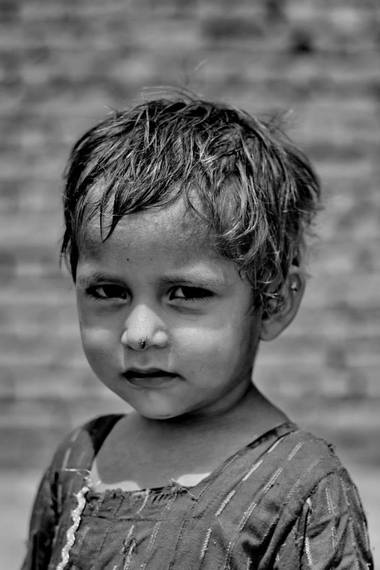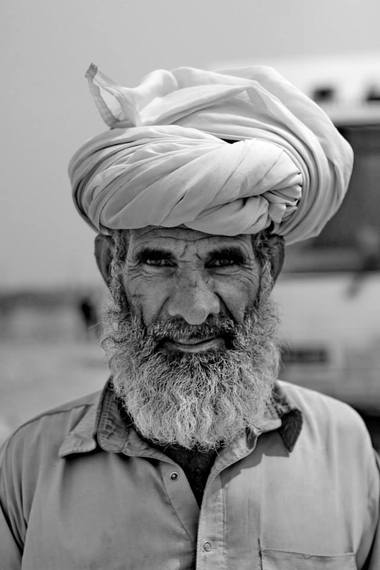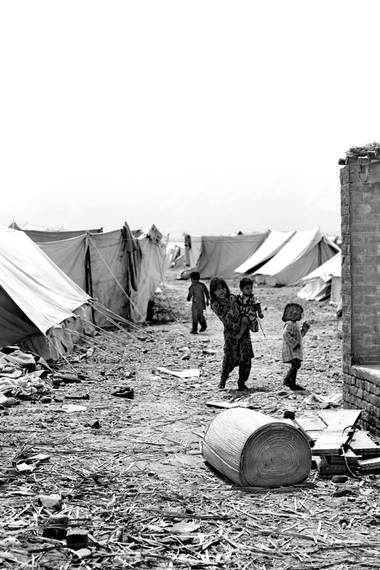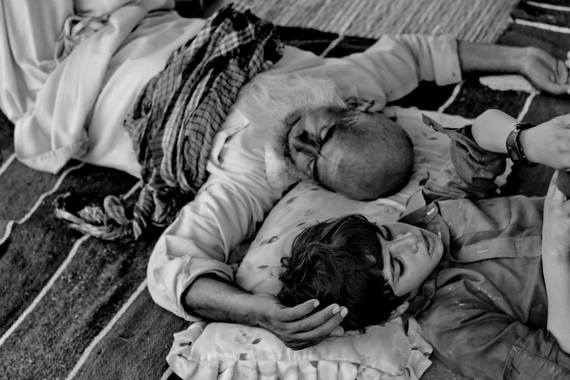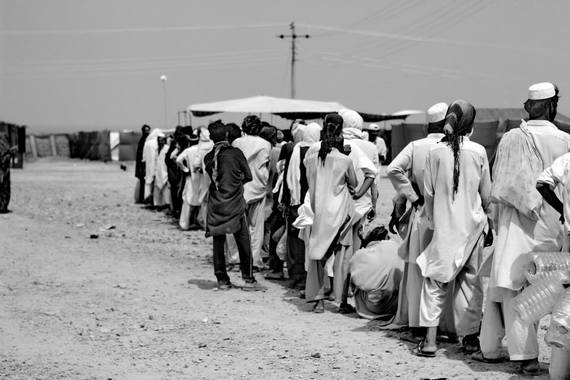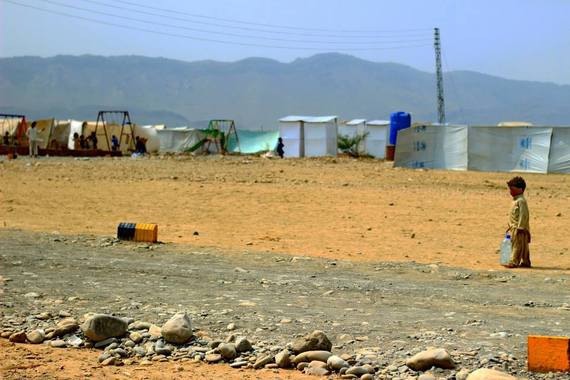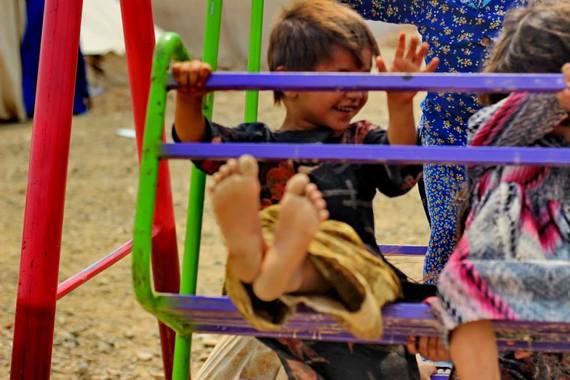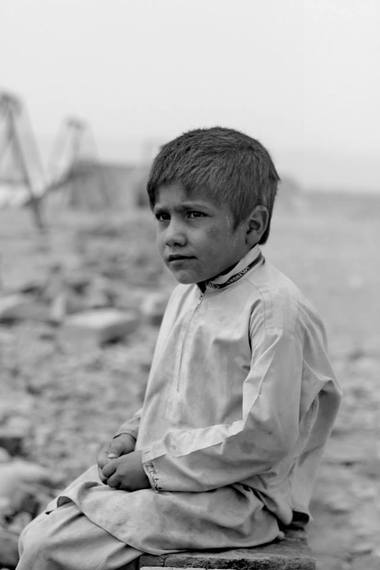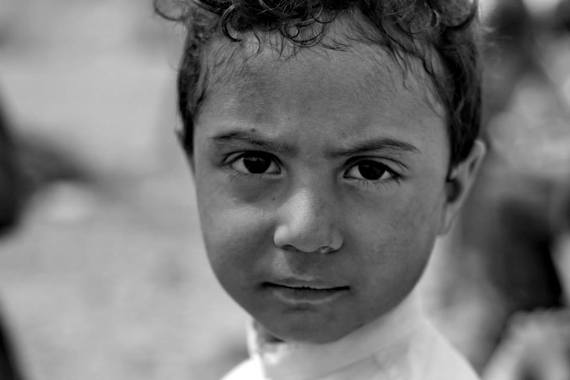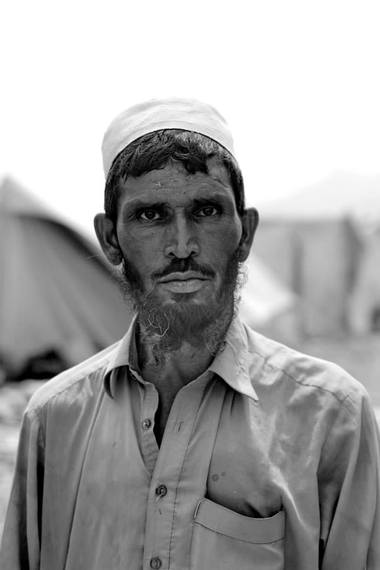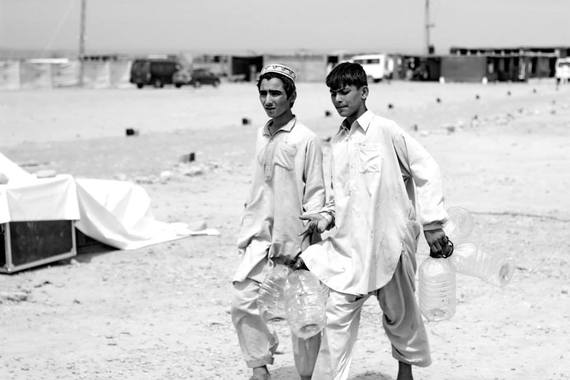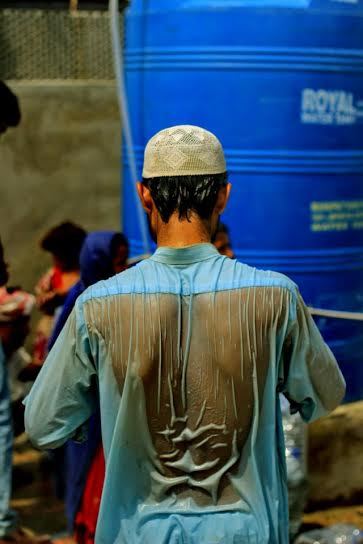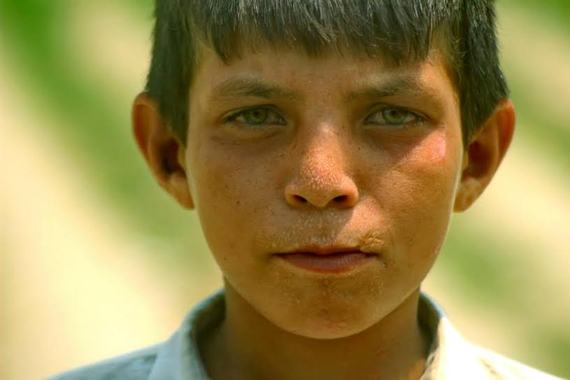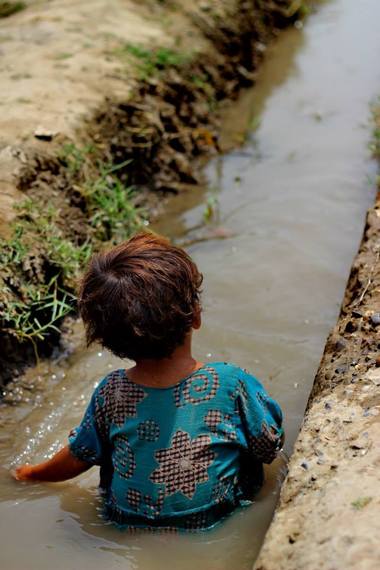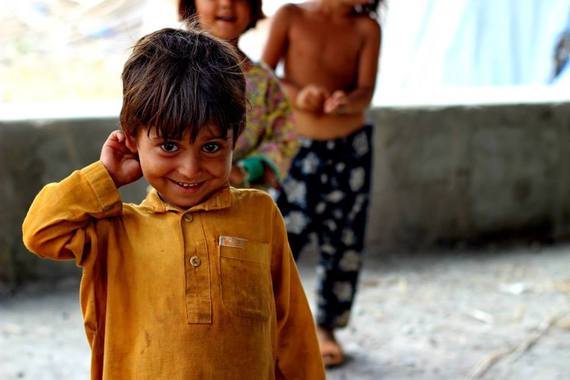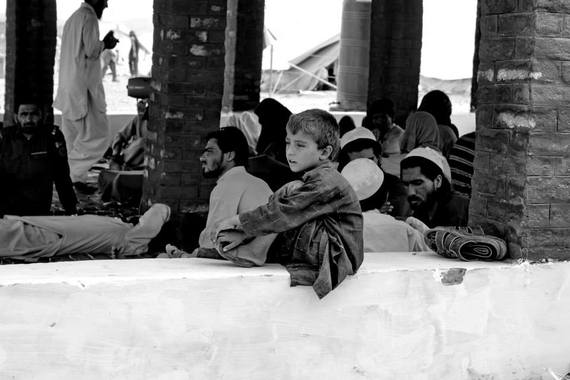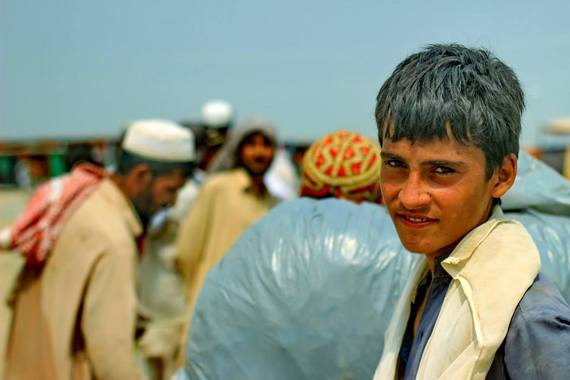Photos taken by Danish Ali Latif
Tucked away in a clearing in the midst of the mighty Safed Koh Mountains, 12 km off track from the city center of Bannu City, one will finally arrive to the makeshift camp set up for the Internally Displaced Persons (IDPs) of North Waziristan. In the first glance, from a distance, the camp will seem perfectly organized with long stretches of tents playing home, and the activity within seeming normal for any family in rural Pakistan. It is only when one gets closer, however, that the normality begins to die down and the severity of the situation begins to arise.
There is a war taking place on this Pak Sar Zameen (holy land). An internal war. A negotiable war. An avoidable war. A war holy enough to be fought with a title most esteem 'Zarb e Azb' the latter part referring to the sword of the prophet. Fighting religion with religion and perhaps a lot more. As I write this today, and as you read this now, the Pakistani army may have shot down another terrorist or, more likely in this situation, another unfortunate civilian who refused to evacuate, as losing his life was easier than losing his pride.
According to the Pakistani tradition it would be advisable for me to point my finger of blame towards the one party I deem responsible for the chaos in the country, but as an informed human I realize life always comes full circle and the 'them' I hope to find at the wrong end of my finger becomes 'us', you and me included.
Whatever the motive may be behind this war, the reality of it lies hopelessly on the rough terrain of Bannu.
"We sit here hoping for a miracle, perhaps our prayers reach the heavens faster with no obstruction from a thick roof up above our heads," Muhammad Khan, an elderly resident of the Bannu camp, explains with his eyes lifted upwards.
Another resident gently narrates his disappointment of not knowing the exact day of his return to his homeland. His grandson, now seated quietly next to him, has been nagging him for days to leave this camp. The older man feels hopelessness dawning upon him, and watches as sadness grapples his family. The wait is killing, and no one knows the time it can take.
Although we speak of North Waziristan the name is highly misleading when it comes to the climate in the area this time of the year. The heat is unbearable, and the only clean water supply is located approximately 200m away from the campsite.
One can see very young children dragging along water bottles headed in the direction of the water tanks. The line is long at these tanks, and at the end the water received is warm and proves to be difficult to even quench their thirst let alone be used for other household chores like cooking and cleaning. The buzz around the tanks is constant, and the need for further supply of water growing.
Women are hardly seen due to the traditional practice of Purdah; instead one runs into high barriers, throughout the camp, posted up around some tents to provide some sort of comfort to the displaced people. The men spend a great deal of their time running around trying to gather supplies for their families.
It would be easy to argue that the people of Waziristan brought this situation upon themselves by housing terrorists in their region, but then again we were not doing much about this breeding in the past when every indicator flashed red before our eyes. Zia may have created these blood thirsty bats with the aide of a much stronger beast to fight off another, but when we could no longer feed them we ignored, fatally, the process of laying them to rest. A clichéd argument, but one strong enough to quiet down living rooms and boards rooms.
What now? We do not know, exactly, the amount of time it will take for the army to get rid of this mountain like problem, and the number of people arriving at our doorsteps in the cities does not seem to be decreasing. Some generous residents may take families in, but for how long? This war may take years, and after that returning to their lands may become an unnecessary step. We may have just displaced these people forever, forcing them to disconnect from that which was most familiar.
As one walks around the camp, besides the scene of utter desperation one will come across a group of young children pushing each other on a set of swings -- it is perhaps their only form of entertainment. For a while they will squeal with joy as the lift of the push will tickle their stomach, and height of the rise will allow them to look down at the rest. The second the swing will stop and their faces will come into full view a sort of darkness will ride within their eyes, a darkness that will cloud their vision for a great deal of their lives. As children all we know and want to know is comfort and familiarity. The young beautiful children of these IDP camps have seen or felt neither. Broken and forgotten as children, rough and indifferent as adults.
A country like Pakistan, created on the displacement of millions of people, perhaps has inherited the future displacement of millions more. We have been torn apart twice, attacked from every side and yet our greatest enemies live within our own lines. Our greatest battle is with ourselves, the emotionless state of moving past and no longer caring. We are present today, know exactly the state of our compatriots and yet we can only discuss a future we may never see.
As one leaves the camp in Bannu a sort of burden rides upon their shoulders. The disparity has been witnessed and the future seemingly bleak for these people. The journey back home is quiet and still, no potholes, no heat, nothing seems to be a discomfort and the destination seems so close by. We live within the same borders as these unlucky people, perhaps even a few kilometers away from their hell on earth, but as we cross over to the better half of our country, we easily forget the turmoil our personalized war on terror has caused to millions. As the gates to our homes open, and the sun sets in the horizon so do the thoughts of the beautiful people who will sleep under the stars uncovered by the reality of our egos.
